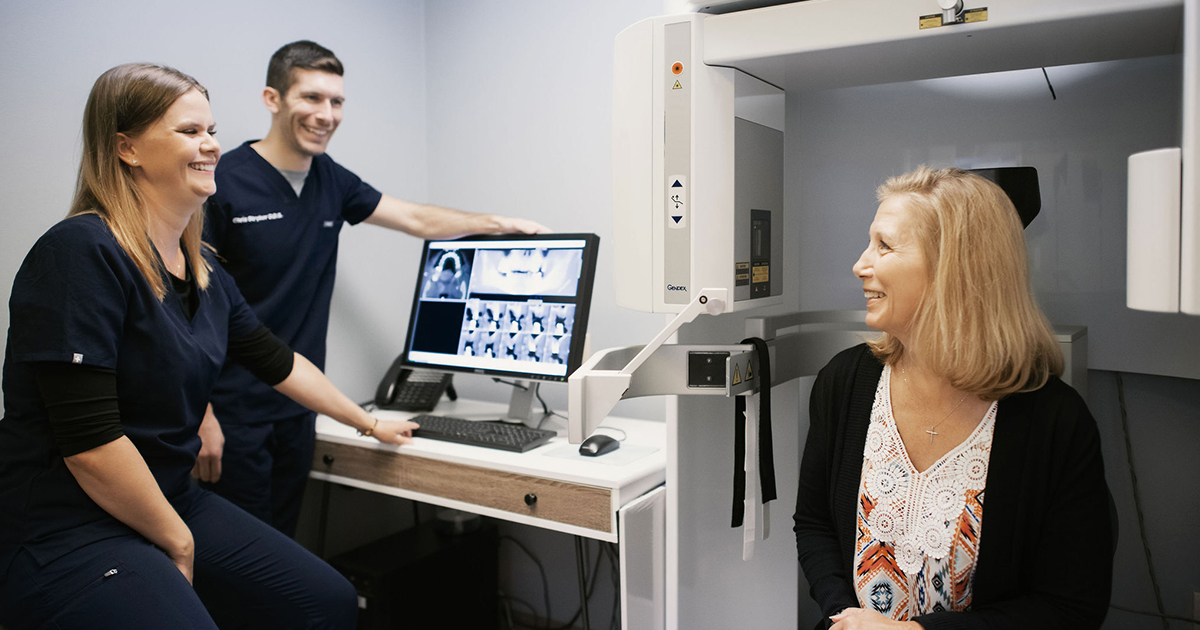Caring for your gums is just as important as caring for your teeth. Dr. Stryker can treat periodontal disease in all stages.

Periodontal Care
Caring for your gums is just as important as caring for your teeth. Dr. Stryker can treat periodontal disease in all stages.

What is Periodontal Disease?
The gingiva, also known as your gums, is the soft pink tissue that supports your teeth. In fact, without it, your teeth could not stay in your mouth. If you want strong, healthy teeth, you need strong healthy gums.
Caring for your gums properly means brushing and flossing daily and seeing us for routine hygiene exams and cleanings every 6 months. However, when a person neglects to take care of their gums, they can become irritated and infected as plaque-causing bacteria accumulate along the gum line. This is what is known as periodontal disease, and when it is not treated, it can quickly become a serious problem for your oral health.

Risks Associated with Periodontal Disease
When periodontal disease is in the early stages, we call it gingivitis. When it becomes more advanced, it’s called periodontitis. Dr. Stryker can tell you if you have periodontal disease and what stage it is in during your semi-annual oral hygiene examination.
During your exam, your hygienist will use a special instrument to measure the pockets between your teeth and gums. If the pockets are too deep, it is a sign you have periodontal disease. There are other signs Dr. Stryker and your hygienist look for and that you can look for at home, including:
If you do not improve your oral healthcare routine or receive recommended treatment after being diagnosed with gum disease, it will progress. If you have any of the symptoms listed above, they will intensify. In very severe cases, you could lose one or more teeth and contract an infection that could easily spread throughout your mouth, eventually entering your bloodstream and spreading to other parts of your body, like your heart or lungs.
Treating Periodontal Disease
Fortunately, periodontal disease is not only preventable, but it’s also treatable. After a thorough assessment of your teeth and gums, Dr. Stryker will be able to determine how far advanced your gum disease is and create a treatment plan to restore your gums to health. Depending on your case, he may recommend:
The more severe the case, the more extensive the treatment will be. You may need to follow up with Dr. Stryker several times during the year to ensure that your gums heal properly and that there are no signs of returning disease or infection. With successful treatment, your gums will be healthy again and your oral health will improve.

Worried about RECESSION?
Gum recession is a problem a lot of dental patients experience. Watch as Dr. Chris Stryker explains all about gum recession, what causes it, and whether you should be worried about it. You may be surprised to learn why your gums are receding. Here’s a clue: it’s probably not poor dental hygiene. If gum recession worries you, watch this video. Then, contact Lincoln Crossings Dental Care in North Huntingdon, PA today to schedule an exam.
